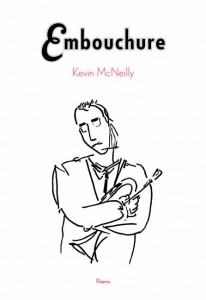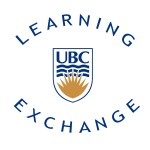Animal research is an intriguing yet controversial area of research in academia. The IKBLC recently sponsored a webcast of this lecture, “Who Benefits From Animal Research?” hosted by Green College’s Thematic Series: Bringing the Collective Together: Nonhuman Animals, Humans and Practice at the University. This talk probes the questions of the value for humans of medical research on nonhuman animals, the value for nonhuman animals, and the role of culture and corporate interests in discourses on human disease and security. Each speaker will speak for 15 minutes followed by 30 minutes of discussion. This talk features: Fabio Rossi, Canada Research Chair in Regenerative Medicine, Medical Genetics, UBC; Bill Milsom, Zoology, UBC; Nelly Auersperg, Obstetrics and Gynaecology, UBC; Dan Weary, Animal Welfare Program, UBC.
Kedrick James – Language and Literacy Education: An Aesthetic Approach
Webcast sponsored by Irving K. Barber Learning Centre and hosted by the Department of Education. This presentation explores the use of procedural poetics to enhance language and literacy education, in particular the teaching of writing, by developing strategic pedagogical interventions to direct language study while simultaneously providing students with opportunities to create remarkable literary works. Drawing on the range of rules and constraints utilized by the influential French movement called Oulipo, and in particular a schematic for potential literature suggested by Marcel Benabou (1986), an overview of possible writing strategies will be presented, with examples of processed poems performed. The liberating aspect of this form of creativity comes from focusing concentration on formal constraints thereby dislodging the self-conscious ‘blocks’ that can arise under pressure to be original and inspired. Instead, directed language play engenders mastery of difficult genres of composition by reinforcing linguistic understanding and giving aesthetic experience to the acquisition of new vocabulary. Aspects of personal preference and style become actively engaged in procedural writing and constraints can be used to strategically guide writing development with important implications for literacy and writing pedagogy.
Relevant Books and Articles at UBC Library
James, K., & Petrina, S. (2006). After-lifelong learning: A eulogium. Taboo, 10(2), 5. [Link]
James, K. (2012). Mobility and literacy: Development of the public network concept. Language and Literacy, 14(2), 6. [Link]
James, K. (2007). Poetic terrorism and the politics of spoken word. Canadian Theatre Review, 130(130), 38. [Link]
UBC Library Research Guides
Patricia Churchland – Braintrust: What Neuroscience Tells Us About Morality
Webcast sponsored by Irving K. Barber Learning Centre and hosted by Green College. Patricia S. Churchland is professor emerita of philosophy at the University of California, San Diego, and an adjunct professor at the Salk Institute. Her books include Brain-Wise and Neurophilosophy. In 1991, she was awarded a MacArthur Fellowship. What is morality? Where does it come from? And why do most of us heed its call most of the time? In Braintrust, neurophilosophy pioneer Patricia Churchland argues that morality originates in the biology of the brain. She describes the “”neurobiological platform of bonding”” that, modified by evolutionary pressures and cultural values, has led to human styles of moral behavior. The result is a provocative genealogy of morals that asks us to reevaluate the priority given to religion, absolute rules, and pure reason in accounting for the basis of morality.
Moral values, Churchland argues, are rooted in a behavior common to all mammals–the caring for offspring. The evolved structure, processes, and chemistry of the brain incline humans to strive not only for self-preservation but for the well-being of allied selves–first offspring, then mates, kin, and so on, in wider and wider “”caring”” circles. Separation and exclusion cause pain, and the company of loved ones causes pleasure; responding to feelings of social pain and pleasure, brains adjust their circuitry to local customs. In this way, caring is apportioned, conscience molded, and moral intuitions instilled. A key part of the story is oxytocin, an ancient body-and-brain molecule that, by decreasing the stress response, allows humans to develop the trust in one another necessary for the development of close-knit ties, social institutions, and morality.
UBC Library Resources
Churchland, P. S. (2002). Brain-wise: Studies in neurophilosophy. Cambridge, Mass: MIT Press.
Churchland, P. S. (2011). Braintrust: What neuroscience tells us about morality. Princeton, N.J: Princeton University Press. [Link]
Churchland, P. (2011). Free will matters. AJOB Neuroscience, 2(3), 1. doi:10.1080/21507740.2011.588905. [Link]
Churchland, P. (2013). Exploring the causal underpinnings of determination, resolve, and will. Neuron, 80(6), 1337-1338. doi:10.1016/j.neuron.2013.12.005. [Link]
UBC Research Guides
Kevin McNeilly – Robson Reading Series at IKBLC Presents "Embouchere"
Webcast sponsored by Irving K. Barber Learning Centre and hosted by the Robson Reading Series at IKBLC. Kevin McNeilly is an associate professor in the Department of English at UBC. He has been interested in poetics and philosophy since graduate school: he wrote his Master’s thesis on the poetry of Robert Bringhurst, and his doctoral dissertation on the later work of William Butler Yeats. He has written and published scholarship and critical essays on a variety of literature, media and music, including work by writers, thinkers and performers such as Charles Mingus, Elizabeth Bishop, Jan Zwicky, Miles Davis, and Robert Creeley. He is a member of the “Improvisation, Community and Social Practice” research initiative. In addition to his academic publications, he has had poems published in Canadian Literature and The Antigonish Review. Embouchure (Nightwood Editions, 2011) is his debut poetry collection. He lives in Vancouver, BC.
Selected Articles and Books At UBC Library
McNeilly, K. (2011). Embouchure. Gibsons, B.C: Nightwood Editions. [Link]
UBC Library Research Guides
Kevin McNeilly (With Percussionist Nicholas Jacques)
January 26, 2012, 2.00pm to 3.00pm at the Lillooet Room, Irving K. Barber Learning Centre
Kevin McNeilly’s debut poetry collection, Embouchure, compiles the intertwined lineages of trumpet players who came to prominence in the States during the “pre-bop” era, loosely defined as the period between 1890 and 1939. This series of vignettes betrays a broad and detailed knowledge of the players’ lives and work, yet reads like a collection of conversational anecdotes shared between the musicians and those around them. Rather than focusing on the solid facts of their lives, McNeilly brings to life the characters they inhabited and stories that surrounded them, all in a vibrant, slangy dialect that adeptly reproduces the feel of the period.Within the course of Embouchure’s thirty-seven portraits, Buddy, Satch, Bix, Jabbo, Cootie, Cat and the rest are resurrected in their smoky, brassy, sepia-toned glory as figures deeply steeped in their own mythos. Despite embracing the fictional aspects of their lives, however, McNeilly styles these remarkable men and women with pure love and admiration, not only for their shared history and contribution to the evolution of jazz, but also for the pure, loud, messy beauty of the music itself. In this stunning and highly readable debut, McNeilly boasts finely honed poetic chops, proving that heart remains the first and finest ingredient in any truly virtuosic solo.For registration, please go to: http://www.kevinmcneilly.eventbrite.com
For more information about past readings, please click here:Our partners for the Robson Reading Series at IKBLC:
For more information, please contact Allan Cho
Anne Martin-Matthews – Demographic Context, Policy and Practice Agendas, Research Opportunities
Webcast sponsored by Irving K. Barber Learning Centre, and hosted by Green College.This presentation will place the aging of Canada’s population in an international context. It will consider implications of population aging for health services and systems (especially in relation to cognitive impairment, mobility in aging, and home care); and it will address the research opportunities of more longitudinal lenses and emerging scientific perspectives. Anne Martin-Matthews has recently completed two terms (2004-2011) as the Scientific Director of the Institute of Aging, one of 13 national Institutes of the Canadian Institutes of Health Research. Since coming to UBC in 1998, she has held positions as Associate Dean Research, Associate Dean Strategic Initiatives, and Dean pro tem in the Faculty of Arts. She has been a member of the Department of Sociology since 2008.
Under her leadership, the CIHR Institute of Aging led the development of the Canadian Longitudinal Study on Aging (CLSA), a 20 year study of 50,000 Canadians aged 45-85. The CLSA was launched in 2009. The Institute of Aging has also developed strategic initiatives on Cognitive Impairment in Aging, on Mobility in Aging, and on Health Services and Systems for an Aging Population. The Institute is an associate member of the ERA-AGE2, and participated in FUTURAGE, leading to the development of a European Roadmap for Research on Aging. International partnerships were developed with China, Japan, France and with the UK.
UBC Library Resources
Martin Matthews, A., & Canada. Health Canada. (2002). The health transition fund: Seniors’ health. Ottawa: Health Canada. [Link]
Matthews, A. M., (Canada), H. T. F., Canadian Health Research Collection, & Canadian Electronic Library (Firm). (2002). Seniors’ health. Health Canada.
Martin Matthews, A., & Phillips, J. (2008). Aging and caring at the intersection of work and home life: Blurring the boundaries. New York: Lawrence Erlbaum.
Martin-Matthews, A. (2009). Bridging research and policy in aging: Issues of structure, process and communication. Canadian Journal of Occupational Therapy, 76(3), 228-231. [Link]
Martin-Matthews, A. (2011). Revisiting widowhood in later life: Changes in patterns and profiles, advances in research and understanding. Canadian Journal on Aging, 30(3), 339. doi:10.1017/S0714980811000201. [Link]
UBC Research Guides
Mathabo Tsepa – Keynote Opening Speech to Africa Awareness Week 2012
Webcast sponsored by Irving K. Barber Learning Centre. Mathabo Tsepa completed her PhD in Environmental Education with Dr. Nashon in the Dept of Curriculum & Pedagogy. Her work connected the National University of Lesotho and UBC to promote the exchange of cutting edge best practice research and policies about learning regions. She was also involved in the UBC Go Global program. By stressing Africa’s impact on western higher education, the Africa Awareness Initiative (AAI) hopes that the university realizes the necessity of a stable African Studies Program. The presence of such notable speakers on campus shows that the University of British Columbia shows its continued dedication to follow through with the complete and justified creation of global citizens.
Relevant Books and Articles at UBC Library
Dasgupta, S., & Centre for Science and Environment (New Delhi,India). (2011). Environmental education: A book of activities : Climate change, natural resources. New Delhi: Centre for Science and Environment.
Robottom, I. (1987). Environmental education: Practice and possibility. Geelong, Vic: Deakin University.
Aldrich, J. L., & Kormondy, E. J. (1972). Environmental education: Academia’s response. Washington: Commission on Undergraduate Education in the Biological Sciences.
UBC Library Research Guides
Health Information Series Presents Dr. Roger Wong at Richmond Public Library
Health Information Series Presents Dr. Roger Wong of UBC Faculty of Medicine
Live Webcast Link: http://tiny.cc/ikblcwong
“Managing Dementia, Alzheimer’s and Acute Care for Elders Units:” UBC Health Information Series Presents Dr. Roger Wong”
March 1, 2012 – 7:00-8:30pm at Richmond Public Library’s Brighouse Branch Library
Presented by the Irving K. Barber Learning Centre and Woodward Library, the Health Information Series is an ongoing public lecture series that take place in the Lower Mainland community. Who is a geriatrician? Someone who is dedicated to the health and well-being of our nation’s elders; someone who is dedicated to medically complex patient care involving interacting medical, neurological, psychiatric and social problems; someone who is on the front lines in coping with the changes associated with the graying of our society…and more! Dr. Wong is Clinical Professsor in the Division of Geriatric Medicine of the Department of Medicine, and is also President of the Canadian Geriatrics Society (CGS) — the first British Columbian to lead the organization in 20 years. As an expert on aging and geriatrics support, please join us as Dr. Roger Wong will bring a lively presentation and discussion to the community of Richmond, BC at the Brighouse Branch Library of the Richmond Public Library.
IKBLC Featured in This Week At UBC
The IKBLC was featured on “This Week at UBC”, including a clip about the Live-in for Literacy initiative taking place at the Learning Center January 17 to 26.
Opening Africa Awareness Week Conference 2012 webcast online
Webcast sponsored by Irving K. Barber Learning Centre. Mathabo Tsepa completed her PhD in Environmental Education with Dr. Nashon in the Dept of Curriculum & Pedagogy. Her work connected the National University of Lesotho and UBC to promote the exchange of cutting edge best practice research and policies about learning regions. She was also involved in the UBC Go Global program. By stressing Africa’s impact on western higher education, the Africa Awareness Initiative (AAI) hopes that the university realizes the necessity of a stable African Studies Program. The presence of such notable speakers on campus shows that the University of British Columbia shows its continued dedication to follow through with the complete and justified ‘creation of global citizens.’






